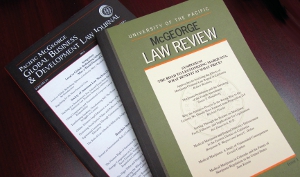Document Type
Article
Publication Date
Winter 2007
Abstract
Pacta sunt servanda, the cardinal rule of international law, prohibits the breaking of agreements. But what role should international law play in the making of agreements? In How Nations Behave, Louis Henkin challenges lawyers "to think beyond the substantive rules of law to the function of law, to the nature of its influence, the opportunities it offers, the limitations it imposes-as well as to understand the limits of its influence in a society of sovereign nations.' 2 In that spirit, international law scholars have redoubled efforts during the last decade to measure the influence of law on international politics, drawing on theoretical and methodological frameworks developed by political scientists. 3 Relatively little attention, however, has been directed to explaining how law functions in international peace negotiations, in part, perhaps, because it is difficult to find satisfying answers to this question within the framework of a single discipline. While contract and negotiation theorists have examined how parties make use of, and are constrained by, legal rules when engaged in private ordering, their analysis has tended not to address the peculiarities of the international setting-in particular, the relative indeterminacy of international legal norms and the relative unavailability ofrecourse to third-party adjudication and enforcement. Conversely, because studies by international law and international relations scholars have tended to focus on compliance with multilateral treaty regimes and adjudications by international tribunals, they overlook the unique roles that law plays in the context of international bargaining.
Publication Title
YALE J. INT’L L.
ISSN
0889-7743
Volume
32
Issue
1
First Page
61
Last Page
124
Recommended Citation
Omar M. Dajani, Shadow or Shade: The Roles of International Law in Palestinian-Israeli Peace Talks, 32 YALE J. INT’L L. 61 (2007).



